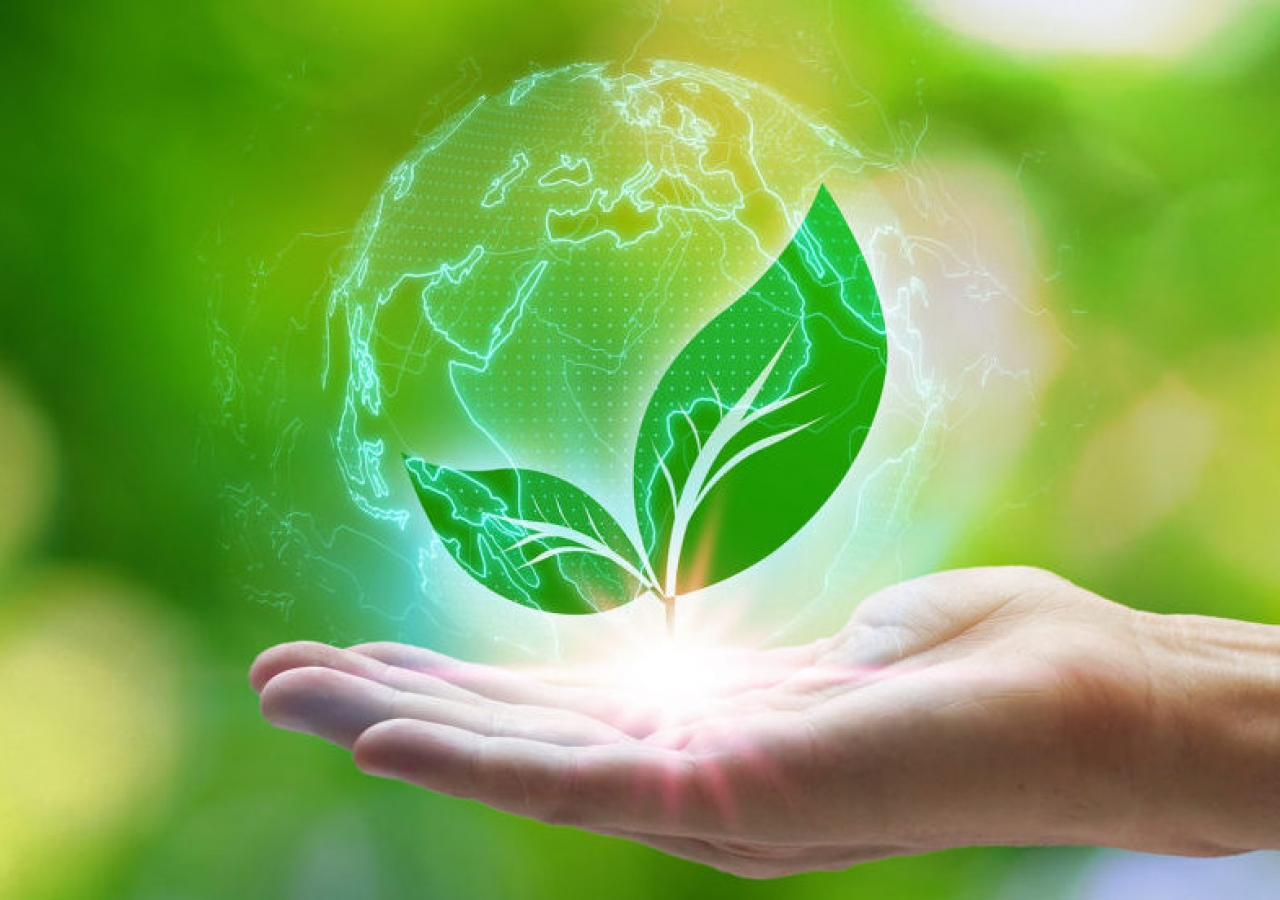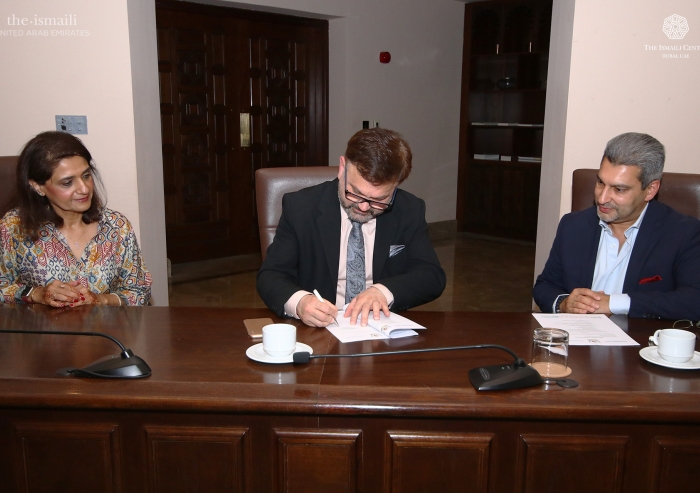Youth taking on Climate Change with Green Chillies & Coriander
Video Credit: Zanir Munir
Students accept the challenge to understand climate change and food security using green chillies, coriander and technology.
Skill building is a cornerstone mandate for the Aga Khan Education Board (AKEB) for the United Arab Emirates (UAE). As part of a skill building exercise, a group of 25 students aged 11 to 14, from the Ismaili Centre, Dubai pledged to make a difference in addressing climate change and food security, using green chilis and coriander.
While referencing the United Nations Sustainable Development Goals (UNSDG), the group established a key relationship between climate change and food security. The connection between the food that we eat, and how food is produced, affects not only our health but also the environment. There are several steps that take place before food arrives at our tables, that may create greenhouse gases. About one third of all human-caused greenhouse gas emissions are linked to food production and distribution. Additionally, water is a scarce resource, so saving water during food production directly addresses climate change.
Background and Context
In January of 2023, Her Excellency Shamma Bint Suhail Faris Al Mazrui, Minister of State for Youth for the UAE, and Climate Pioneer for Youth at COP28 noted that, "The UAE's investment in youth to enhance its efforts and support its strategic plans on climate change issues will give it double impetus to find direct practical solutions that will reduce environmental concerns and challenges in the short term.” This year, COP28, the 28th session of Conference of the Parties, will be held in the UAE. More than 190 countries will come together at COP28, and collaborate to find solutions and strategies to reduce worldwide greenhouse gas emissions.
Chillies and Coriander
The 7-week programme, “Coding for Sustainability” brought together innovative technology (known as microbit) and aspects of science, technology, engineering, arts and mathematics (STEAM) to effectively conserve water when growing food, which in this case consisted of chillies and coriander. Students were first engaged in a discussion about the UN’s 17 Sustainable Development Goals (SDGs) to better understand existing global challenges and what they meant in the context of their lives today.
The students were then introduced to the microbit, “a pocket-sized computer” that can be programmed to complete a number of different tasks. The students learned how to download, code and use the microbit. In simple terms, the students used a soil moisture sensor and connected it to the microbit. By doing this, they were able to use technology to determine when the soil was in need of water. They also built and coded their own water pump to provide the plant with water when needed.
The learnings were two-fold: (i) growing their own food and (ii) conserving water. It was interesting to note that partway through the programme, the students were already less likely to waste food after they had the opportunity to grow their own. The youth actively engaged in discussions relating to carbon footprint, decarbonisation and other challenges as they worked together through their experiments. They are now continuing to raise awareness by speaking with others locally.
When asked about their experience with this programme, one of many participants shared,
“After receiving the award for most innovative solution at a LEGO League competition, when Miss Saira approached myself and some of my teammates to mentor some of the young aspiring coders, I was delighted to be able to be a part of this mission, once again. Coding for climate change is the foundation for the youth to take a step forward in the right direction to combat this global issue.” Kanza
The UAE recently announced 2023 to be the Year of Sustainability. Hence, this programme, which was launched in October 2022, was a great way to introduce the youth to the SDGs, challenges and issues at hand.
Further, the UN Secretary-General, António Guterres, expressed the following sentiment as a goal for the International Day of Women and Girls in Science: “We can all do our part to unleash our world’s enormous untapped talent – starting with filling classrooms, laboratories and boardrooms with women scientists.” The Coding for Sustainability programme comprises of 65% girls, in keeping with both these goals, confirmed Saira Gulamani, lead trainer of the programme.
What are some additional changes we can make to further empower women and girls in science? To begin with, we suggest the following and look forward to your additional ideas which can be posted on our Instagram and Facebook pages, @ismailicentredubai
- Introduce successful females in science as role models.
- Encourage Science, Technology, Engineering and Math (STEM) education from a young age using STEM based tools for learning.
- Create an environment that exposes and promotes science, both inside and outside the classroom.
- You could even try engaging your children with STEM simply over dinner table conversations!
We look forward to your thoughts!








